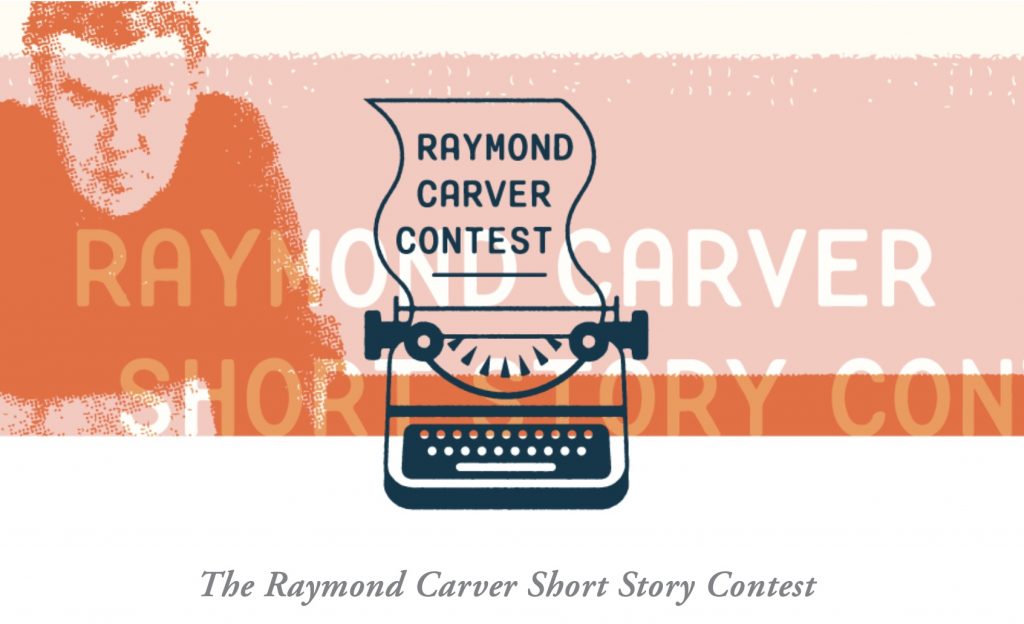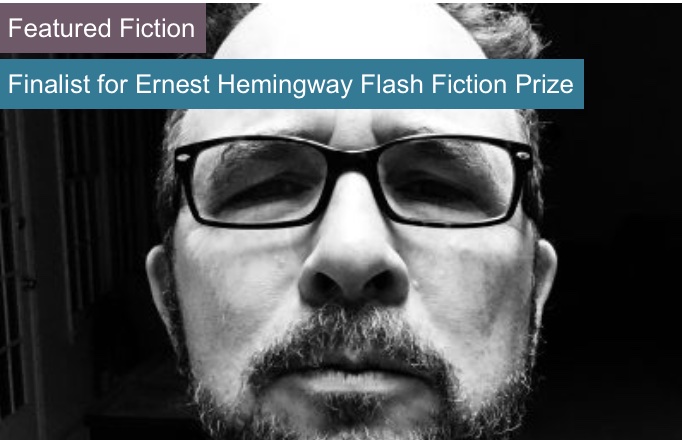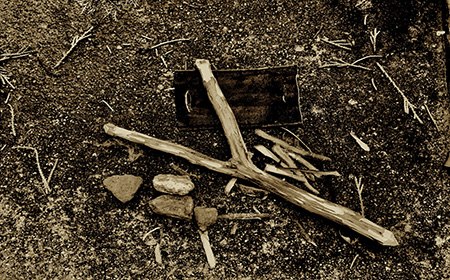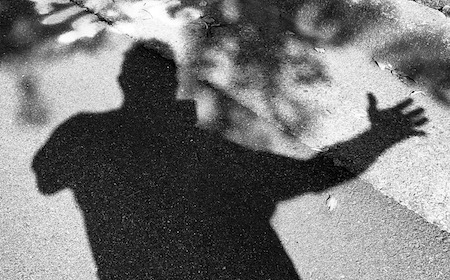Interviews

Interview with Carve Magazine
Interview conducted by Russell Brakefield
THE VENEZUELAN DIASPORA
To start, could you give our readers a little bit historical context for this story?
Well, it’s been called the Venezuelan diaspora. Over five million people have left the country. During the Chavez & Maduro regimes that became a Castro-style dictatorship, Venezuela was infiltrated by the Cubans, followed by indoctrination, secret police, the works. One of my aunts was a judge, and she had to retire because even the legal system was infiltrated by the Cubans. A lot of people outside may not know these things. And that system has permeated to every aspect of society.
That’s sort of why I wanted to start there, because I think to someone who’s not informed, this could seem surreal or cinematic, but this is real life stuff, right? It seemed important to you as the author to bring these things to people’s attention.
Yes. I live here in the United States, and a lot of Venezuelans come over and tell me the calamities they went through. I even started interviewing some doctors who have been in Venezuela about what was going on in the hospitals. I started getting all this information and it was really overwhelming. Venezuela used to be a paradise. I’m a cyclist, and my mechanic turned out to be from Venezuela. He grew up about three miles from where I grew up. I asked him, “Why did you leave? You come from a middle-class family, and now you’re a mechanic here.” He told me that he left because his kids got kidnapped. He told me exactly the street where it happened. I know that street. I understand his story. And that started playing in my head as I was developing these characters. A lot of the elements in the story came from asking people, “How did you survive? Why are you here? What happened to you down there?” Things like that happened constantly. It’s so surreal–that people are going through those things.
This story is kind of weird because it is a part of a bigger work. I was trying to do something similar to what Junot Diaz has done in his novels. That is, instead of having a narrative of one person, he uses different people to tell the story. So for this bigger work, I have a central character named Alejandra. It all started with one story “Three Chicas” where she’s already here in the States, so from then on it exploded in my head. I wanted to know what had happened to her before, what made her come here. Some stories were about her, others about people she knew down there. One of these stories was published in Litro Magazine out of London. In that story, one of her friends is being chased by the national guard, because that is what they do down there when they have been to marches and demonstrations. In a different story, where they make shields so they can be protected from the plastic bullets and throw back the tear gas canisters, and protect the marchers, she meets this guy and they become boyfriend-girlfriend, but then he gets shot in the leg. The stories are all loosely connected to Alejandra in some way. But I felt I needed something else, another point of view. Because everything I’ve been talking about is about the bad dictatorship, the bad national guard and bad police. And I said, what if I take their point of view? What would they have to say to defend their point?
And how did this project get started?
A few years back, I started writing a book, and I was going to call it, “American Illegal.” It was modeled after The Invisible Man, but about Latinos, and it touched on some elements of my family and upbringing. I realized that I was going to get addicted again to something more powerful than crack–the novel. I had already written two novels, one was about what happened in Argentina. I’m not from Argentina, I’m from Venezuela, but I still wrote about that. That novel took ten years of my life. Five years of research, and then five years of editing. And because I didn’t want to go that path again, I preferred to work like Junot Diaz and Jhumpa Lahiri have done, using short stories to build something bigger.
Then this publication was doing one of those challenges, “Oh, here’s a sentence. Start with it and write something,” and the sentence was, “She was on the platform, waiting.” So I started writing a scene where a bunch of women is waiting for ICE to get their papers. That’s the story that I published in California. That’s where Alejandra became alive. After that, I had all these questions about her. Who is she? How did she get here?” I just became so infatuated with her that I had to write. Again, this is when I made the conscious decision to not write about her alone. That story is very ala Quentin Tarantino. It tells the same scene first from her perspective and then from the perspective of a friend who’s kind of a DACA girl. Then from a dishwasher woman from El Salvador who knows that if she ends back in her country, M13 is going to kill her.
The story ends like that. And you just say, “What happened?” So I started thinking, “Okay, what did she do when she was in Venezuela?” I even wrote in my head what city her parents were from, why did she speak English, and that her parents grew up in the oil camps. Even though they lived in Venezuela, in order to survive and make a living, they had to speak English because that’s the only language that the Gringos wanted to hear. That’s where I started developing the character in that bigger sense. Again, I wouldn’t call it a novel-novel, but all these different stories of different people that surround her world.
That’s probably fun, and also frustrating sometimes, trying to line everything up.
Yeah. It can be difficult because a lot of times when you’re writing a story, you’re writing in a vacuum. Then, when you write the other stories, you are like, whoa, wait a second. What did I say on that one? I wrote it about a year and a half ago. I have to reflect on that particular element.
Let’s talk about the narrator of this story. He’s not a very sympathetic character. He’s complicit in a lot of the corruption that the story deals with. He takes advantage of women. He takes bribes. But I think this is an important, a clear choice you made.
He’s a monster. In the previous story, the most important thing that happened was what he does to Alejandra. That is what changed her whole world, which traumatized her existence. But I wanted to make this almost insignificant in this story as if he didn’t care. It’s that sense of compartmentalized reality, that because you’re a survivor of the barrio, you develop this very narrow vision of good and evil. You think you’re doing good, but in reality, you’re part of the very evil that you profess not to like.
He was originally, a very difficult character to write–in the previous story. I got stuck for a year because I couldn’t close it. When I’d talked to doctors, I didn’t feel I could put those experiences into the story. I said, “no, nobody’s going to say this.” But then I talked to the ex-husband of my sister’s daughter. He used to be in the national guard for some time down there, and then he was a first responder. He knew all these things. I started talking to him like, maybe seven to past midnight, and this is after being stuck for a year and talking to doctors and all this stuff, and he told me their mentality, he told me who they responded to, he told me how corrupt they can be. He gave me all these things and suddenly, I was able to close that previous story. So when I got to him in this story, I already had all the backstory that was given to me, so, rather than researching so much in terms of his personality, I knew it from the start, so I could just plunge into his character.
How did you choose to write this in the first person?
When I came to this character, I started writing in the third person and then said “Whoa, no. I need to get more involved.” I wanted to create a character that you couldn’t trust – an unreliable narrator. My third-person narrator couldn’t do that. I needed to become him and have his anger, his sense of defiance. I had to switch it to the first person and start working it from there. Because I’ve been writing a lot of stories that are Spanish-English, I throw a little bit of Spanish in so you get the feel, but then I tend to overdo it with the translating. I had to let go so the readers would have to figure things out on their own to make him sound more real. I wanted you to feel that he’s speaking his native language. He says things in English and communicates that way, but it needed to be his voice.
With all that in mind, there is still a shift in the narrator’s sense of self. How did you think about his motivations or his character changing as the story unfolds?
He does change, but he does change in a very reactive way. He’s, again, part of the corruption that exists. It’s better to push things around than to do something. His change happens because he just gets so over his head, but also for one thing, and I planted it there lightly, and it’s the part when that guy comes to him and says, “Hey, there are people that like boys. You have boys.” I didn’t want that to be the red flag, but that is the point where unconsciously he begins to change, not to live as the perpetual victim and do something.
There’s some really propulsive action in that moment at the end of this story. How do you think about writing these scenes and balancing the internal and external conflicts for your characters?
I hate to say this, but I feel that a lot of short stories become too internal. They can be just so boring. One of my favorite writers, his name is Thom Jones, wrote a book of short stories called Sonny Liston Was A Friend of Mine. To me, when I started reading Thom Jones, I felt that I could go inside the characters, I could see the rawness, I could see how flawed they were. There was something almost Hemingway-esk about it. He was very unapologetic about that approach. I loved that. It felt that was something that I could do in a story and still keep it literary, still address what I think are important issues without turning into TV drama, but rather something still of substance.
This project is really fascinating. What do you hope your readers will take away from it once it comes together fully?
I think the world needs to read about it, the world needs to know that reality. The interesting thing is that I was talking to some friends from Venezuela, and one of them read not this story, but a different one, and he was, “Okay. You talk too much about Arepas and this and that and the other.” I said, “Look, let me explain to you. You’re not my audience. I’m not writing this stuff for another Venezuelan. You’re living it. You don’t need to be reminded. I’m writing it for the world to see. So they can feel what’s going on down there, and experience it how people down there experience it.” As ridiculous as something might sound to us here, that stuff, like that, really does happen down there.
What is your writing process like? Do you write every day?
One thing that helped me is that I work in downtown Atlanta, but I live in the suburbs. I work for Morehouse School of Medicine. My drive is an hour and a half. It’s brutal. I used to put the radio on and listen to the news, and by the time I got to work, I was absolutely frustrated. One day, I decided that I was not going to do that anymore. I was going to think and dream and stuff like that. A long time ago, I used to teach at a place called Portfolio Center. It’s a place where copywriters and art directors get prepared to do advertising. One of the things that I would teach is that you need to create mental placeholders, because most of the time when you come up with a great idea, by the time that you can write it down and make it work, it’s already gone. So I would do that while driving or when I got on my bike, with no music. I would just think. I go through a character, go through what it is that she’s doing. I prefer to move through it cinematically. I need to be the fly on the wall that also feels what the character is feeling. It tends to be a little bit more visual than just emotional because then I can build the scenes in a way that I can bring him back again later.
I would be in my car, and think “I have to write this down.” So I would pull out my phone and say something to it. I use Siri and dictate to it and I would read it again when I got home later that night, and boom, everything that I was thinking in the car would just come rolling down. Even the things I was not agreeing with myself, or the character was not agreeing with me, or I was not certain about the point of view. It is so incredibly powerful because, by the time that I would sit down and start writing, I was just taking dictation from someplace in my head. As opposed to saying “okay, it’s time to write,” and nothing happens.
That sounds like it takes some discipline, but also like it really works.
The other thing I like to do is what has been called, I think, the iceberg theory. It’s something that Hemingway created. You think of the tip of the iceberg for a story, then you go under, all the elements in it, all the complexities of those lives and those existences. The idea is that even when you just hit the tip of the iceberg, say five words, they are so charged with that person’s life, that even though you never knew the rest of their story, you feel it, you knew it. That is so important. It creates a sort of Hemingway compression. That’s why I love those long drag sessions in the car or on the bike because I can go through the whole life of the person.
I’m fascinated with the ways that you’ve talked about research. It sounds like you do quite a bit of very specific types of research before and during writing. Could you talk about that more?
One of my favorites writers is Salman Rushdie. He wrote some incredible books that are very historical and very relevant to the history of India [Shame, Midnight’s Children]. I admire his historical approach. Even though everything I’m putting on paper is a lie, I wanted to have a certain degree of authenticity. I want it to be based not on something that I made up, but something that really has happened. For instance, I saw a report that many people, the way that they were escaping what was going on in Venezuela was by suicide. Because Caracas has a lot of high rises, they jumped out of their balconies and windows. That was happening a lot, and I was thinking “how is this possible?” Even BBC Español had something on it. Actually, the information I got on the jails, I got it from BBC Español, how these people that are inside of the jails pretty much control even the police. All those things are real. To me, it’s important to be real, so it’s not that I’m just making stuff up, even if it’s in a social-political context, because otherwise, you would think this is impossible.
We talked a little bit about some of your literary influences, but are there any of things that have influenced you in writing this story or influenced your work on this project?
I have to say, I started writing because of Gabriel García Márquez, his short stories. I have his books in Spanish and English, and I will read one in Spanish and then go back and take the same book and read it in English. They’re so beautiful. But two other people that I found absolutely mesmerizing, are Jhumpa Lahiri, and of course, Junot Diaz. I remember when I first read Drown. That just blew me away. I didn’t hear from him for a while, until he won I think the Nationa Book Award, or the Pulitzer, I don’t remember, for The Brief Wondrous Life of Oscar Wao. That’s where it kind of dawned on me. Okay, yes, I can write politically but also very personal. My characters don’t need to be cardboards. They could be idiots. They could be average people that like to eat too many potato chips and that sort of thing. That is the beautiful thing that he did. He opened that perspective for me. He helped me see that I could go there, that I could push it completely in that direction and see where it goes.
I usually end with this question. If you had to pick a song or a piece of music that might accompany this story as a sort of a soundtrack, what would that be?
Right just on top of my head, without even thinking, is that song, “Only the Lonely.” That’s the song that comes to mind. I could see that playing in the background of this story.

Interview with Fiction Southeast
The story behind “I’m Blue.”
I’d like to clarify that the first person voice of “I’m Blue,” is a woman. This story started with a previous flash “Three Chicas” (published in Ghost Town) where I introduced Alejandra, the narrator of this story. I was so taken by her that I wanted to write a whole novel. So I did research and had a lot of her backstory developed from where her grandparents were from, what her father did, to how her brother was arrested for treason. But a novel is a long commitment that seduces you like a heavy opiate and it doesn’t let you go for years.
A publication issue a theme that they wanted stories that use magical realism, a form that I love, and many of my earlier works used that technique. I had recently been bombarded in social media by the terrible news of children eating out of garbage cans and people jumping off buildings because they could not cope with the political unrest in Venezuela. My mind was way deep in Alejandra’s world, so I thought of the metaphor of the blue macaws that roam the city of Caracas and have made it their home.
I wanted this story to feel more like a poem, a meditation, so I used the Hemingway Iceberg theory, where you strip out everything to the most essential words. Even though you omit the backstory, you feel what they have gone through. Everything in this story is something that is going on for real in Venezuela. It rips me to the core when I realize that I’m just touching the surface. Thank you so much for reading.

Interview with Wraparound South
When did you know you wanted to be a writer?
When I was a small kid, I used to hide in closets and draw on the walls people, houses, horses, trees. If you looked under every piece of furniture in the house, you would find one of my drawings. Because of my dyslexia, I gravitated towards the visual arts. I did not want to deal with the tormenting reprimands I constantly got about my spelling.
So I won prizes for my paintings and fell in love with the works of Gaugin, Goya, Delacroix, El Greco and was in awe by the Mexican muralist, telling bigger than life stories in grandiose spectacles of color and form. But painting went through a period of abstraction, of what I considered, reduced to a decoration and a piece of furniture. I wanted my paintings to tell stories, to move, to feel, to have angry characters, brave characters, epic dramas to unfold.
It wasn’t until I read two works that I felt that what I desperately wanted to do was write. That was “The Metamorphosis” by Frans Kafka and “As I Lay Dying” by William Faulkner. I was so shocked, so mesmerized that I then consumed like a junkie Hemingway, Marquez, Styron, Italo-Calvino, Flannery O’Connor and so on. It was then that my paintings became a zoetrope in my head and began to move. I traded my brushes and canvases for words and paper. I could now laugh, cry, be angry and find some deeper meaning in my work, but it took me many years to actually feel like I was a writer. I was just a dyslexic hack, writing was my secret, a closet addiction, besides my grammar was still horrible, my spelling bad, and English was in deed, my second language. But I was hooked and there was not turning back, and thus I became a writer.

Interview with The Seventh Wave
What advice do you have for new and emerging writers?
Writing is a calling.
It’s not something you do because you wish to have written a novel or some short stories. If you consider at all the hours you’ve devoted to writing, you’ll realize that you get paid more money flipping burgers at McDonalds.
Writing is discipline.
It means that if the muse is not awake today, you edit; if you don’t feel like editing, you write query letters and submit work; and when the muse decides to visit, do not ignore it, do not wait until you get home to write. If you’re driving get off the road and pull your phone out and record all the crazy stuff that comes to your head. Place some memory triggers so you can go to that place when you get a chance to work on the material.
You are what you read.
That means, read a lot. I have a library at home with over two hundred first editions. I’ve read all of them. Some, like Raymond Carver, Gabriel Garcia Marquez, or Flannery O’Connor three times or more. Then you have to be and live your writing. Whatever life throws at you, be the camera that records everything, smells everything, grasp the emotional content of everything.
Keep a journal.
Preferably one of those hard backs with blank pages. And don’t be afraid to write about anything and everything. Make friends with all your imaginary friends. They have lives and reasons for being. Argue with them, ask them to explain what they do. Realize that they have huge flaws, but that they also think that they are right even when they screw up.
If you are bored in the middle of something you are writing, realize that your reader will be bored as well.